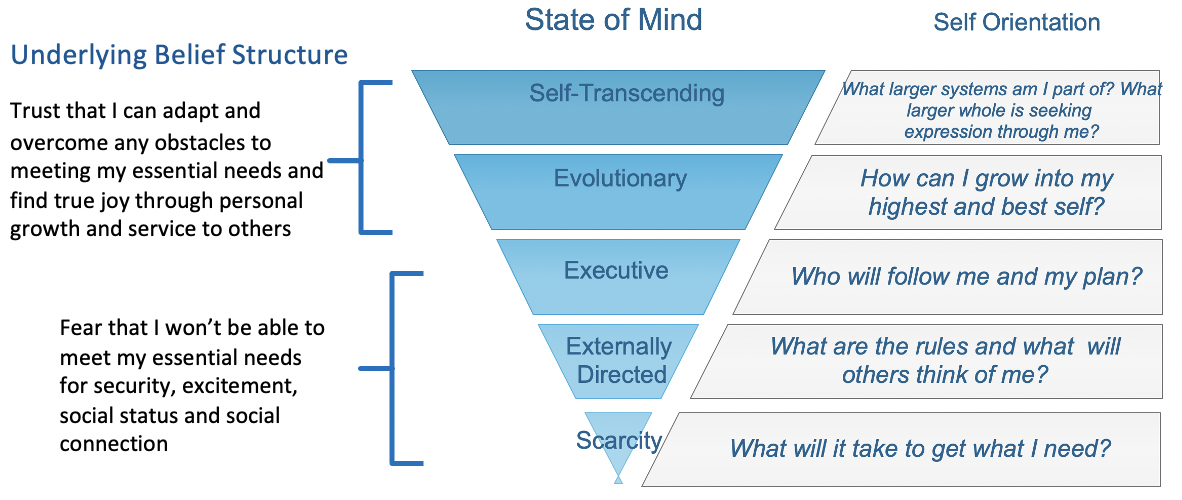The 7th Pillar of Personal Development for Change Agents: Expanded Perspective
Aug 24, 2021Seeing Past Yourself to the Larger Whole
Your highest and greatest contribution as a change agent rests on being able to transcend yourself. To see the bigger system around you--to "see the matrix." And not just to see it for yourself, but also to help others see the larger systems of which we are all a part. Being able to see the world around you in all its complexity, with a critical, yet appreciative eye is vital to "getting real" about how change actually plays out in the world. Doing all that you can to see past your own blindspots and biases is also critical to perceiving your own role in the systems you seek to change. This is why Expanded Perspective is the 7th and final pillar of personal development for change agents.
Three Tools For Expanding Your Perspective
The video and the accompanying worksheet offer 3 paths to help you expand your perspective.
1. Tuning into your state of mind
The graphic below lays out a framework for 5 different "states of mind" and how these influence our self orientation--how we go about meeting our fundamental needs. We all move between different states of mind, sometimes from one moment to the next. Getting better at recognizing which of these states of mind you are in at any given moment is a great start to expanding your perspective, particularly when you realize that each state of mind has a lot to do with what you will notice and how you will focus your energy in that moment.

2.Connecting your state of mind to how you show up as a change agent--especially around issues of equity and identity
A second key tool for expanding your perspective is to explore how your state of mind in the moment is connected to how you engage systemic inequality and bias. Download the worksheet to explore opportunities to level up your work as a change agent by shifting your state of mind.

3.Tips for taming your cognitive biases
We all suffer from blindspots and cognitive biases, and sometimes one of the most powerful things you can do to expand your perspective is simply to become more aware of what you are missing. If greater awareness is a key first step, actually curing yourself of cognitive biases is notoriously difficult. That said, the worksheet offers 7 tips for reducing your susceptibility to tunnel vision and faulty reasoning.
- Take more time. If you have the opportunity to make a conscious choice, you very likely have enough time to actually engage in a careful reasoning process
- NEVER make a choice between only two options—force yourself to generate at least four possible course of action before making a choice
- Force yourself to make multiple estimates. If you have to make a guess in order to have a critical piece of data for decision making, make several separate estimates and average them together
- Imagine that all your available options are suddenly gone—what new option would you have to consider then?
- Use pre-mortems to work through and solve for the possible things that could go wrong based on your chosen course of action BEFORE you are irrevocably committed to that course of action
- Use scenario planning to kill the official future. Force yourself to consider multiple future scenarios, not just the version of the future you hope will come true
- Use checklists and "blind tastings" for doing due diligence on decisions where you know you have an emotional attachment or psychological need at stake
Stay connected with news and articles
Join us to receive the latest news and updates from our team.
Don't worry, your information will not be shared, and you can unsubscribe at any time
We hate SPAM. We will never sell your information, for any reason.

